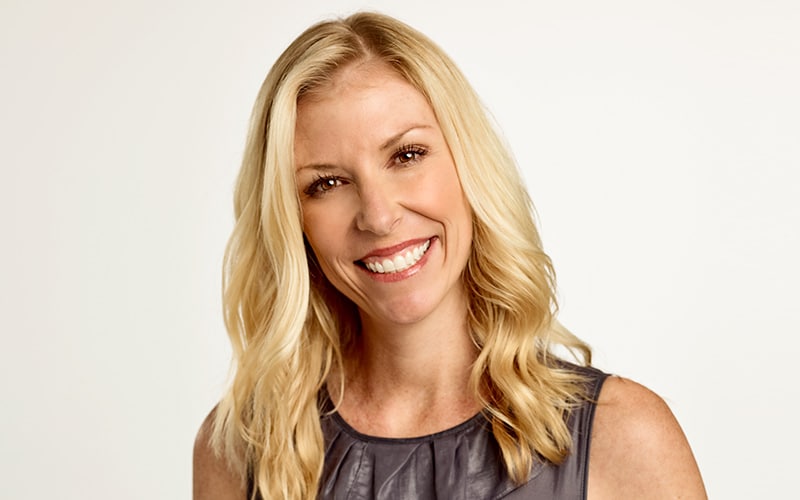Learning Through Play

The 50th anniversary of the World Economic Forum annual meeting is approaching, and I’m reminded of its motto: Committed to improving the state of the world. As business, political and academic leaders we have a professional obligation to evaluate the macro impact of our actions. And as many of us are parents, we also have a personal interest in developing a society where our children can thrive. As we prepare to examine a better tomorrow, let’s start by considering what we can learn from our children today.
Many forces in this Fourth Industrial Revolution are changing how we work. Digital disruption, new media, the terabytes of data we each generate; new economic and business models mean new ways of working. Returning to the basics of our shared humanity is a helpful place to begin. Children play to learn how to work; to understand how to be in community, to collaborate with others, to solve problems. Play is serious business. Here’s what I’ve noticed watching my three sons.
A scar is a badge of honor
My youngest son recently got stitches in his eyebrow and at a family gathering it was a source of pride. He told the story over and over again; how he didn’t cry and it’s better now and he’s learned not to jump off the bleachers. He knows when you try new things and test the limits of, say, how high you can jump, there are risks. And that the inevitable bumps and bruises are a badge of honor. He understands that narratives are important. The stories we choose to tell ourselves have power and telling our story to trusted people can help us process. Don’t we all need to do this as adults when we try something and get hurt? We want to tell someone who cares and remind us both that it’s better now and we learned some things.
Learning and growing is the point
Young children are constantly learning. They are amazing examples of how to get continuous feedback from your environment and incorporate it into new behavior. They have a drive to learn – look at any baby who is learning to stand and will pull himself up over and over again, even when he falls down. Each new skill or environment disrupts the habits and assumptions of the one before, yet children hurtle towards the new without a backward glance. How can we be open to new experiences? Cultivate a beginner’s mind to let go of old ideas that no longer serve us? Do we seek out and incorporate learnings from our environment, our failures, the people around us? Can we recapture that excitement about learning and changing that children have?
Create with what you have
As children learn through play, they focus on imagination and make creative use of whatever is at hand. Yesterday I watched my boys make stories out of jelly packets and straws while we were out to breakfast, then later they constructed an entire baseball game out of found sticks and pine cones. Imagination can imbue the most mundane objects with a new life. What looks like a large cardboard box to me is a rocket ship to my sons. How can we burnish the mundane and the taken for granted by seeing them through the lens of the maker, the one who builds new worlds, the imagination? Is what we call vision in corporate life really just a refined ability to imagine a new way of being and articulate that to others – with or without jelly packets?
Play nicely with others
Children aren’t born with prejudices or bigotry, that’s something they learn. Most school aged children are in situations where they need to learn how to navigate differences all the time. Other children who are taller or smaller, who have different skills or abilities, who run faster or write more clearly. We teach our children to try new things, like a food they haven’t had, or an experience that might be daunting. We encourage them to play nicely in the sandbox with the other kids. We recognize play as critical practice in social and communication skills that will be useful to them throughout their lives. But do we bring that same care to interpersonal connections in our work? Have we put the focus on profit, success or our personal brand above the social and communication skills we encourage our children to focus on by being kind to one another?
Brush it off
Any parent has had that moment when a child stumbles or runs into a piece of furniture and isn’t hurt but looks to you, the parent, to decide how to react. In that swift look is a question – do I start screaming now or do I brush it off? We are constantly helping our children understand what is a threat and what is not. The stranger who approaches you on the street to get into his car is different than the discarded pants that appear to be a monster under the bed. We all run into conflicts, or disappointments in our work. Do we ask ourselves “how important is it?” Did I just get a bruise to my ego or my pride or have I really sustained an injury? Am I actually under threat of some kind or am I just seeing a proverbial monster under the bed? Knowing the difference between when I need to attend to an emotion and when I can brush off a minor slight is a useful skill in leadership as well.
I love watching my children play. Their bravery and flights of fancy, their focus, delight and creativity. The small negotiations over who gets a turn and who gets to be in charge. The joy they have when they can put aside their inevitable squabbles and collaborate and build something together. Can we improve the state of the world by adopting some of the complex skills of children at play?

